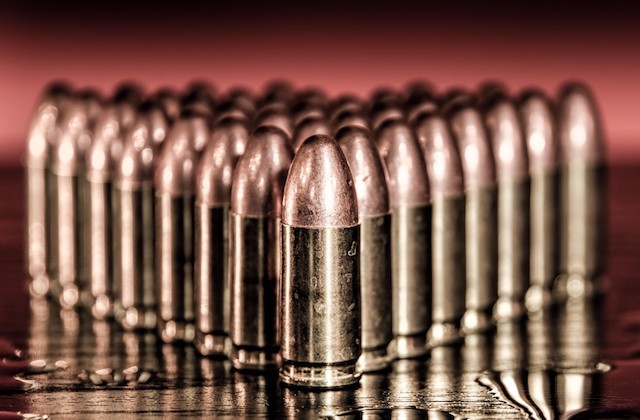My name is Brandon Dasent, and I live in what was considered the safest community in Florida until February 14, 2018.
My name is Amina Henderson, and I live on the south side of Chicago, where young people experience the carnage of gun violence nearly daily.
We are two young people from very different communities, but we have both experienced the trauma caused by gun violence and are pleading for immediate action from local, state and federal policy makers.
Can you imagine living 50 feet from Marjory Stoneman Douglas High School, coming home to realize that the lives of some of your classmates were taken away? As you try to comprehend the events of the day, and even just fall asleep, the sounds of helicopters and sirens are a reminder that your life will never be the same.
Now imagine having that experience of mayhem and loss every other month, to the point where you are tired of attending the funerals of loved ones. When you live in a community gripped by gun violence, you rarely have time to grieve a victim before the next is gone, and age is not a defense against this trauma.
In Chicago, between September 2011 and June 2018, 1,665 young people were victims of gun violence, according to the Chicago Tribune. In Florida, 1,284 youth were killed between 2006 and 2016. Nearly half of those fatal shootings happened in South Florida, and two-thirds of the victims were Black children.
Our lived experiences brought us together last fall when we convened in Florida with other student survivors from across the country. We realized then that while survivors in Parkland were being celebrated as heroes, Black and Latinx students in communities that have dealt with gun violence for decades were being marginalized and outright ignored.
We are from different backgrounds and communities, but we both want to know how many more lives must be lost before there is substantive action to make our schools and communities safer? We are not concerned with prayers and well wishes; we want action.
As our nation reflects on the tragedy of the Parkland shooting today, we plead with elected leaders and the media to not pit our respective communities against each other by celebrating one group at the expense of the other. We also want them to refrain from elevating policies, including expanded police presence in schools, that harm our communities.
The criminalization of students has a devastating impact on our families. For example, according to the United States Department of Education, Illinois schools reported 4,985 arrests of K-12 students in 2013-14. That amounts to more than 25 students arrested every school day across the state. And more than 75 percent of the students arrested in Illinois were kids of color.
For us, reflecting on the anniversary of Parkland is about remembering all victims of gun violence—no matter where or how it happens, violence hurts. When we shared our experiences at the survivor meet-up, we recognized the need to build community, uplift one another’s narratives and develop solutions that address root causes, not just band-aids that provide a false sense of safety. We saw a need to push for solutions that support rather than traumatize and criminalize students of color.
According to the Association for Children’s Mental Health, at least half of all kids ages 6 to 17 live with a mental health challenge and aren’t receiving the mental health care services they need. Young people in communities rocked by gun violence have a theory about what the nation needs in this moment: We are launching a campaign to establish a grant for school districts to provide increased mental health services in schools. Schools need more resources to address violence in communities of color and the resulting trauma.
As we honor young people who lost their lives to gun violence and the people they left behind, we pledge to never stop building strong alliances across communities, elevating solutions that address the root causes of violence in impoverished communities and creating safe and healthy school environments.
Brandon Dasent is a survivor and senior at Marjory Stoneman Douglas and co-founding member of Students Tactically Organizing Revolutionary Movements (STORM), a group that represents the voices of the Black population at Marjory Stoneman Douglas and their fight to end gun violence.
Amina Henderson-Redwan is a youth organizer with Voices of Youth in Chicago Education (VOYCE). She has been leading efforts in Chicago for more than six years to shift resources from policing in schools to investments in mental health and restorative justice practices.
